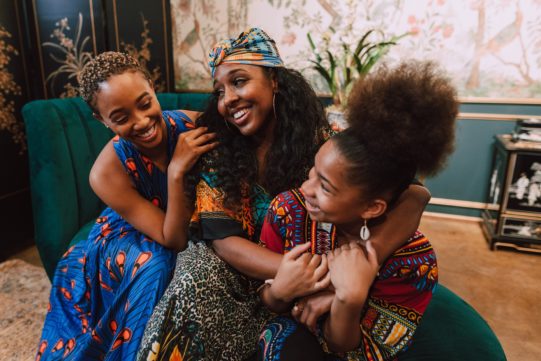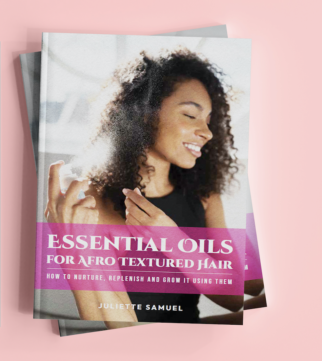You and Your Natural Hair, A Guide for Its Care
Caring for your natural hair. Is there an ultimate guide? Natural hair care can seem like an overwhelming subject, especially with all the products and techniques available to you. With so many companies trying to sell you their products, it’s hard to know what products are good and natural enough for your hair type. Luckily, there are plenty of options available, as well as tons of tips that make caring for your natural hair easier than ever before. Read on to learn more about the best ways to care for your natural hair while taking advantage of the great products out there!
Caring for Natural Hair? Here Are a Few Tips for You
- – Preparation:
First, it’s important to understand your hair type. Most women with natural hair have a mix of 3 or more textures, so don’t panic if your hair doesn’t look like an Afro. There are four main natural hair types: curly (coiled), wavy, kinky, and loose curls/coils. How can you tell which one you have? Pull out some strands of your hair. You have tight coils or curls if they curl around your finger (or a comb). If they bounce back into place without moving a lot, you have medium curls/waves, and if they bend straight backward, you probably have loose waves or straight locks.
- – Invest in Products
Once you’ve taken note of your hair texture, it’s time to invest in products that are appropriate for your hair type. If you need to know how to care for natural/afro-textured hair/kinky, curly, coiled hair, then start with a good shampoo, conditioner and essential oils. At a minimum, you’ll want something that will keep your scalp from feeling too dry and itchy.
Some of you like leave in conditioners. If that’s the case, use one that will take some of the brittleness out of your strands. Most important, focus on making sure your hair is clean and free of product buildup after every wash. This can make all of the difference in how healthy it looks over time! Remember, there is no one right way to care for natural/afro-textured hair/kinky, curly, coiled hair. Every strand of hair has its unique texture and characteristics, which means that finding what works best for you is the ultimate goal.
- – Keeping it Healthy
Keep Your Natural Hair Healthy with these Tips:
- – Wash Your Hair in Warm Water: Hot water isn’t good for your hair. By using lukewarm water, it will help seal in moisture and protect your hair from excess heat. Some cosmetologist suggest cold water washing. If you can’t stand washing your hair with cold water, stick with warm water.
- – Invest in a Quality Shampoo and Conditioner: Cheap shampoos contain sulfates and parabens that can strip away natural oils and dull your hair’s texture. This can lead to breakage and frizziness. Instead, look for a shampoo and conditioner that are specially formulated for kinky/curly textured hair.
- – Avoid Bleaching or Relaxing Your Hair: Both bleaching and relaxing remove vital proteins from your hair strands, leaving them weak and brittle while also making them prone to damage like broken ends.
- – Rinse thoroughly after swimming: Saltwater dries out curly or kinky textures just as fast as chlorine does.
- – Stay away from heated styling tools: You shouldn’t use them too often (blow dryers, flat irons, etc.) because they increase overall damage. However, if you must use them (and sometimes we do), opt for cooler settings.
- – Don’t brush out knots or tangles: Always separate tangles and knots using your fingers first, then go over them lightly with a wide-tooth comb. As tempting as it is to get rid of knots, be careful not to pull at your hair too much.
- – Use a moisturizing oil or hair butter for damaged areas: Are there any specific areas where you have lots of split ends? Try massaging in an oil-based moisturizer or an essential oil.
- – Get regular trims every 6-8 weeks: This helps keep dead hairs at bay and promotes healthy growth.
Wait! Here Are More Tips to Caring for Your Natural Hair
- – Styling
Start by prepping your hair. It’s often best to shampoo and condition first. This helps soften your curls, so they maintain more definition and bounce when you style them. If you choose to do a deep-conditioning treatment, make sure to rinse it out before styling—otherwise, it could weigh down your hair as it dries.
Once you’ve washed and rinsed your hair, use a wide-tooth comb or detangling brush to smooth over any tangles. Be gentle! Be careful not to rip at tangles with excessive force, or you may cause breakage. Then apply a lightweight moisturizer from root to tip (not just focusing on frizzy ends) while slightly scrunching with your fingers throughout your hair.
When caring for natural hair, always remember that less is more. Too much manipulation can cause breakage. Some styles require very little manipulation because they hold their shape on their own (puffs and Afros come to mind). Also, try not to get too hung up on what the product specifically does; instead, try different things to see which method works best for you.
- – Detangling and Conditioning
Detangling is essential. It will help reduce breakage and prevent tangles from becoming dreadlocks. Unless locs are what you want. You can use a wide-tooth comb or your fingers to detangle. Be careful not to rip through knots or pull out hair by accident. It’s better to take your time and slowly work out kinks than force it.
Your goal is to remove knots without removing hair, so be patient and think about what you’re doing as you go along. While your natural oils are good for you, you can always us a oil moisturizer to help keep your hair soft. Mist your hair with water first. Then add a small amount of oil to your hair and massage from root to tips. Try this at least once a week , it will help keep your hair soft and moist.
When It’s All Said and Done …
Your natural hair care routine should be a key part of your daily habits. It’s easy to get lost in all the information out there, especially if you are yet to find something that works for you.
Hopefully this guide has given you a start with what you need to know about caring for your natural hair. Whether you have kinky, curly, coiled hair or some other type of natural texture, this guide/tips will help.
That’s it for this week. As always …
Dedicated to Your Beauty,
Juliette Samuel,
Esthetician/Author/Publisher,





 Facebook
Facebook Twitter
Twitter Delicious
Delicious Digg
Digg Myspace
Myspace StumbleUpon
StumbleUpon Youtube
Youtube